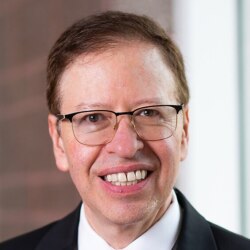Will Taxpayers get Shafted in the Latest Chapter 9 Bankruptcy?
When a government files for bankruptcy, bondholders, employees and vendors typically fight for a share of the agency’s assets. But what about taxpayers? Shouldn’t their interests also be considered by the bankruptcy court judge? This is the question we hope will be answered in California’s newest Chapter 9 bankruptcy, that of the West Contra Costa Healthcare District, which covers Richmond along with some smaller cities and unincorporated areas in a relatively poor part of the Bay Area.
As we previously reported, the district filed for bankruptcy protection after a failed deal to sell its shuttered hospital building and surrounding land. In its Chapter 9 filing, the district reported $57 million in bond debt and $20 million in pension liabilities, both of which it apparently intends to pay in full by continuing to levy a parcel tax on district property owners.
That parcel tax was approved by voters in 2004 before the district filed for the first of its two bankruptcies and while its hospital and emergency room were still open. The ballot language for the 2004 parcel tax measure read as follows:
To prevent the life-threatening shut-down of the West Contra Costa Healthcare District’s only full-service emergency room, which serves all West County residents, and prevent the closure of the community’s local hospital so that victims of heart attacks, strokes, car accidents, burns, toxic chemical releases and other medical emergencies receive rapid response medical care, shall an annual special property tax be authorized with all revenue staying in our community for local emergency and healthcare services and facilities?
But since the hospital closed in 2015, the district has not been providing emergency services, nor much else aside from patient record retention. Instead, tax money has been going to bondholders and to fund administrative expenses.
While bondholders often lose money in Chapter 9 bankruptcy, WCCHD’s bondholders received special protection from the state. Senate Bill 644 (2011), introduced by State Senator Loni Hancock, grants bondholders a lien (basically a first claim) against revenue generated by the parcel tax. The majority of the outstanding bonds, more formally known as Certificates of Participation, carry interest rates of 6% or 6.25%, and are exempt from state and federal tax. High-yielding securities with legal backing from the state are a pretty sweet deal for bondholders, most of whom are likely to be high income earners. It is less wonderful for the property taxpayers who are on the other side of these payments, many of whom have modest incomes.
Meantime, the district has not been funding its retirement plan. Documents obtained by California Policy Center through a Public Records Act request show the plan is just 28% funded. The district has yet to file a “Plan of Adjustment” that will show who the district intends to pay after the bankruptcy. But district trustees at a November 3 board said they intend to pay retirees all benefits.
Money for the pension benefits will come from future tax revenues and from the sale of district’s hospital building and grounds. After a planned sale to a Davis-based boutique hotel chain fell through, the district’s board accepted a $13 million offer from the Lytton Band of Pomo Indians, a Native American tribe that operates the adjacent Casino San Pablo. The tribe intends to demolish the hospital and build a new hotel on the site, ostensibly for the benefit of casino patrons. By accepting the Lytton’s offer, the district’s board passed over two other proposals from medical providers – one that would have converted the hospital to a dementia care facility and another that would have offered psychiatric services. Although these two offers were somewhat lower than that offered by the tribe, they would have at least provided health services in a part of Contra Costa County that has been characterized as a healthcare desert.
Since casino gambling is often associated with smoking and drinking, one might be tempted to characterize the board’s decision as being contrary to the cause of promoting health. Either way, the fact that the board opted for more cash instead of the opportunity to turn the building over to a medical provider throws into question the district’s dedication to healthcare services and should make taxpayers wonder whether their parcel tax money will ever fund the healthcare services they thought they were voting for. We hope that the bankruptcy court judge will consider sunsetting the parcel tax, so that local homeowners do not suffer disproportionately from this bankruptcy.
